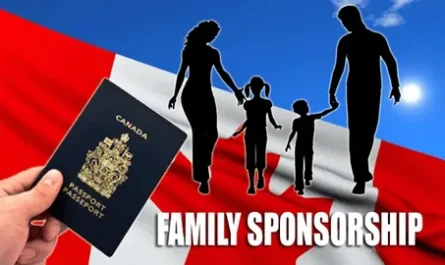Did you know you can immigrate to Canada even if you are unskilled? You must have read so many articles on the internet talking about how you can immigrate to Canada if had that skill or another.
While this is factual, it is also possible to move to Canada as an unskilled worker. This article will explain just how you can go about it.
We know that Canada needs several workers to fill out a vacant position in the countries labor force. These workers also include unskilled workers in the likes of butchers, waiters, kitchen staff, truck drivers, and janitors, and so on.
These sets of people are regarded as unskilled because they have no formal education or a school certificate that represents their trade.
So, unlike the doctors, nurses, Engineers who acquire a school degree, an unskilled worker needs only acquire a skill trade certificate or license, and most times none is required.
The pandemic effect on Canada’s labor market and economy has left the country short of workers, skilled and unskilled workers alike. Many new unskilled jobs are now open, and the Canadian government is looking to bring in more workers this year.
The Canadian government announced earlier this year their plans to bring in over 900,000 persons this year to help improve the economy.
So, if you want a country with so many job opportunities where you can start life afresh, raise your kids, and enjoy life, then Canada should be your destination.
We have listed the top 20 jobs that are currently in demand. But before we jump right in, you need to understand the different job classifications in Canada.
Explaining Different Job Classifications in Canada
Each occupation in Canada is classified or identified by a NOC (National Occupation Classification) code. The codes are used by the government to group the skill level associated with different jobs in Canada. By the grouping standard or NOC skill type and level, your job is classified as skilled, semi-skilled, or unskilled.
NOC Skill Levels Classified as A, B, C, and D
- These jobs require a degree and university-level education
- These jobs require apprenticeship training and college-level education
- These jobs require secondary school-level education along with job-specific training
- These jobs require only on-the-job training
The skilled jobs in Canada are in Classes A and B, semi-skilled and unskilled jobs are in Classes C and D.
Top 20 Unskilled Jobs in Canada for Foreigners
- Butchers, meat cutters, and fishmongers-retail and wholesale (NOC 6331)
- Transport Truck Drivers (NOC 7511)
- Agricultural service contractors, farm supervisors, and specialized livestock workers (NOC 8252)
- General Farm Workers (NOC 8431)
- Nursery and Greenhouse Workers (NOC 8432)
- Harvesting laborers (NOC 8611)
- Fish and seafood plant workers (NOC 9463)
- Laborers in food, beverage, and associated products processing (NOC 9617)
- Laborers in fish and seafood processing (NOC 9618)
- Industrial butchers and meat cutters, poultry preparers, and related workers (NOC 9462)
- Light duty cleaners (NOC 6731)
- Janitors, caretakers and building superintendents (NOC 6733)
- Dry cleaning, laundry and related occupations (NOC 6741)
- Operators and attendants in amusement, recreation and sport (NOC 6722)
- Pet groomers and animal care workers (NOC 6563)
- Security guards and related security service occupations (NOC 6541)
- Customer services representatives – financial institutions (NOC 6551)
- Other customer and information services representatives (NOC 6552)
- Image, social and other personal consultants (NOC 6561)
- Cashiers (NOC 6611)
If you can do any of the jobs listed above, then you have a good opportunity to apply for a work visa in Canada today and are assured a job when you come into Canada.
Top Programs for Unskilled Workers to Immigrate to Canada
There are programs designed and created to bring immigrants to Canada faster, unskilled workers can get fast-track visas to Canada using these programs.
- The Provincial Nominee Program
- The Atlantic Immigration Pilot
- The Agri-Food Immigration Pilot
- The Temporary Foreign Worker Program
- The Rural and Northern Immigration Pilot
The Provincial Nominee Program
Different provinces and territories in Canada have a specific program created to bringing immigrants according to the needs of the province at that period. So, a province might experience a shortage of labor for farmworkers, painters, truck drivers etc.
The main way to meet these needs is to nominate workers who meet the requirements for the particular position for permanent residency. The top PNP programs for unskilled workers are:
- Saskatchewan Immigrant Nominee Program (SINP), for agriculture and hospitality workers, truck drivers, and trade workers
- Ontario Immigrant Nominee Program (OINP), for workers with an employee job offer in hand
- British Columbia Provincial Nominee Program (BC PNP), for entry-level unskilled workers
- Alberta Immigrant Nominee Program (AINP)
- Manitoba Provincial Nominee Program (MPNP), for rural jobs that operate on demand
The Atlantic Immigration Pilot
This program is specifically for applicants who are looking to move to any of the four Atlantic provinces of Canada this include Newfoundland and Labrador, Prince Edward Island, New Brunswick, and Nova Scotia.
The Agri-Food Immigration Pilot
Through this program, the Canadian government can bring agricultural workers to meet the demands of Canadian farmers. The agricultural sector is an integral part of the Canadian economy and the Canadian government is constantly introducing new workers through this program. You are only required to show one year of non-seasonal experience in a similar position to the one you are applying for.
The Temporary Foreign Worker Program
This is perhaps one of the most popular programs on this list. Immigrants and foreign workers are eligible to apply through this program if they meet the minimum requirement that allows them to work in Canada.
The Rural and Northern Immigration Pilot
In an attempt to populate rural areas in some provinces in Canada, 11 cities and towns came together to hire foreign workers through the Rural and Northern Immigration Pilot program. They are located in Ontario, Manitoba, Saskatchewan, Alberta, and British Columbia.
